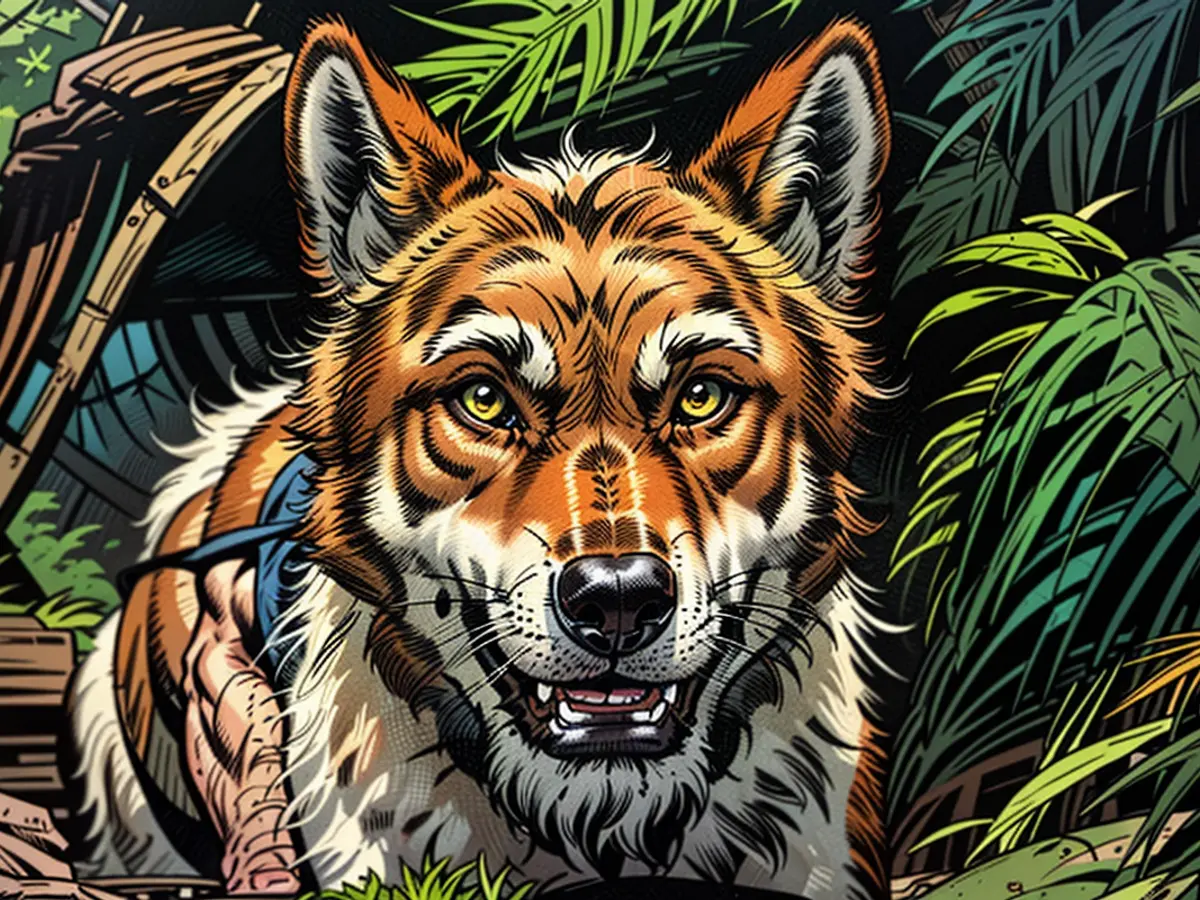Various EU nations endorse decreasing wolf safeguards
Farmers in livestock sectors across EU nations are facing challenges due to the rising wolf population. Recently, EU nations voted for a less protective status for wolves, which might allow for simpler wolf extermination. This decision is merely the initial step towards revising the law.
Insiders in Brussels reported that EU countries, backed by Germany, have initiated the dilution of wolf protection regulations. The German administration's stand on wolf policy has shifted. Although the decision does not carry immediate legal binding on the EU, plans are underway to downgrade the wolf's protection status from 'strictly protected' to 'protected.' While the specifics aren't clear yet, this could make it simpler to hunt wolves.
A more drawn-out process now ensues, with today's vote being the opening move for reducing the protective status. If the decision gets endorsed at the ministerial level, the EU can file an application to the Bern Convention's Standing Committee to decrease the wolf's protection status. The Bern Convention, an international wildlife and plant protection treaty of the Council of Europe, established in 1979, could potentially endorse this change, if there's a favorable majority in the Standing Committee. Subsequently, the EU Commission could propose a modification in the wolf's protection status in EU regulations.
Emotional debates in Germany
The decision requires approval from EU countries and the European Parliament. The plan is open to adjustment. According to insiders, Germany is determined to safeguard only the wolf's protective status, not that of other animals. Besides, as suggested by the EU Commission, no other animal's status will change. From Germany's perspective, coexistence between wolves and livestock farming is essential. "We aim to stop deadly attacks and prevent the cruel demise of our livestock while ensuring the future of livestock farming," said Carina Konrad, the deputy chair of the FDP parliamentary group in the German Bundestag.
While nature preservation requires clear rules and the possibility of hunting wolves, the German government is responding to a heated discussion. Recently, there have been more instances of wolves attacking sheep and cattle, posing a problem for livestock farming—a fundamental goal of sustainable agriculture. Measures to protect herds against wolves are proving increasingly ineffective, as reported. In some cases, wolves have even penetrated into stables. The 'removal'—essentially, the killing of individual animals—poses a problem.
Wolves nearly went extinct
Wolf advocates are resorting to legal action to ban wolf hunting. Frustrated livestock farmers in rural regions like Brandenburg and Lower Saxony are advocating for population control, even creating 'wolf-free zones.' According to the WWF, although the wolf survived in the east and southern parts of Europe, it was exterminated in western Europe and Germany in the mid-19th century. The Saxon wolf office pointed out that there was a shift in public opinion in the 1970s and 1980s, and wolves were protected in several European nations.
The Federal Ministry of the Environment reported that around 1400 wolves were detected in Germany during the monitoring year 2022/2023. The European Environmental Bureau, an umbrella organization for environmental groups, estimates that there are approximately 20,000 wolves in Europe. While the German Farmers' Association warned of increased wolf attacks on livestock, the lobby organization reported more than 4300 instances of killed, injured, or missing livestock in 2022. In 2018, this number was reportedly around half. Consequently, compensation payments for such damages have significantly increased in these years.
The EU, including Germany, is pushing for a dilution of wolf protection regulations within the EU, aiming to downgrade the wolf's protection status. If approved by the European Parliament and endorsed at the ministerial level, the EU could file an application to the Bern Convention to decrease the wolf's protection status.
Emotional debates concerning the wolf's protective status have arisen in Germany, particularly due to rising wolf attacks on livestock, which pose a significant challenge for sustainable agriculture.








